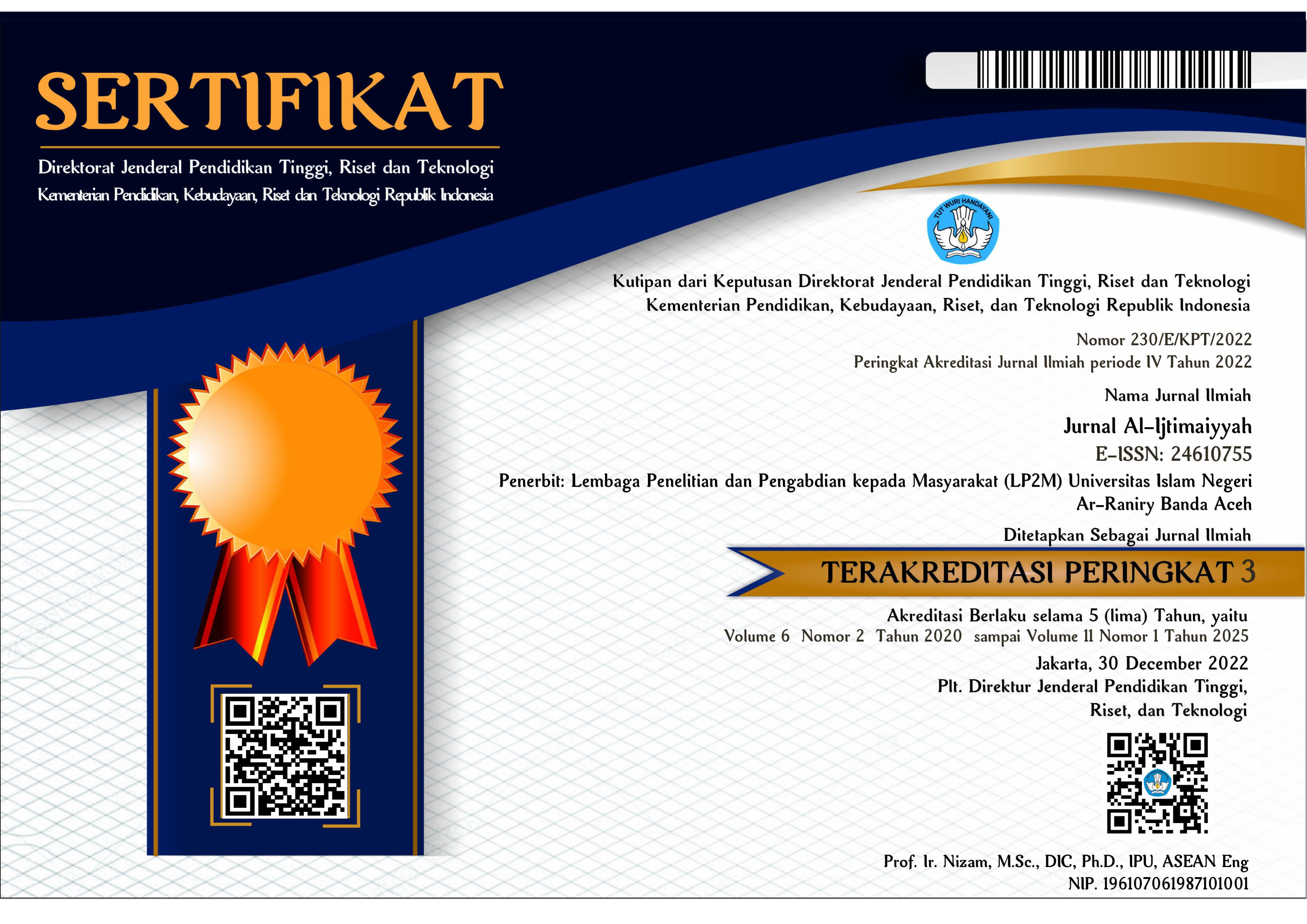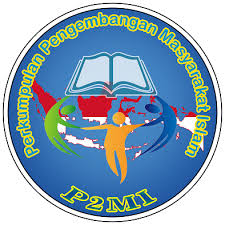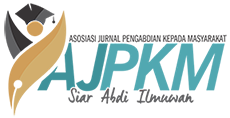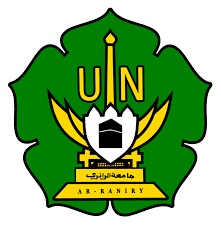ZISWAF MANAGEMENT IN THE DEVELOPMENT OF DA'WAH PROGRAMS BASED ON SOCIAL WELFARE AT LAZ ULIL ALBAB MEDAN
DOI:
https://doi.org/10.22373/al-ijtimaiyyah.v11i1.30871Keywords:
ZISWAF Management, Da'wah Program, Social Welfare, LAZ Ulil Albab, SWOT AnalysisAbstract
This study aims to examine the management of zakat, infaq, and alms (ZISWAF) in the development of da'wah programs at LAZ Ulil Albab, as well as the development of da'wah programs based on social welfare. This study applies a descriptive qualitative methodology. The SWOT analysis method is used to analyze the strengths, weaknesses, opportunities, and threats faced by LAZ Ulil Albab in managing ZISWAF funds. The data used were obtained through observation, documentation, and interviews to provide a comprehensive picture of the zakat fund management process and the implementation of da'wah programs aimed at improving social welfare. The results of the study indicate that LAZ Ulil Albab has successfully managed ZISWAF funds transparently and effectively and has developed various da'wah programs that have a positive impact on the welfare of the mustahik, such as scholarships, food aid, and free medical treatment. However, there are obstacles in delivering information to the public about the need to pay zakat through institutions and the development of zakat digitalization. The findings of this study provide recommendations to LAZ Ulil Albab for the development of more targeted policies and strategies aimed at empowering the community and increasing the success of achieving the objectives of zakat in accordance with Islamic teachings and the principles of social justice.
Downloads
References
Abiyani and Rizal. 2022. Analisis Peran Zakat, Infaq dan Sedekah dalam Mengatasi Kemiskinan di Indonesia pada Masa Pandemi Covid-19 (Analysis of the Role of Zakat, Infaq, and Sadaqah in Overcoming Poverty in Indonesia during the Covid-19 Pandemic). Proceeding of the 3rd International Conference on Islamic Studies (ICIS) 3 (3).
Al-Zuhaily. 2000. Zakat Kajian Berbagai Mazhab (Zakat Study of Various Mazhabs). Bandung: PT Remaja Rosda Karya.
Amsar. 2019. Analisis Efektivitas Pendayagunaan Zakat Produktif Pada Pemberdayaan Mustahik (Case Study on LAZISMU Central Office) (Analysis of the Effectiveness of Productive Zakat Utilization in Empowering Mustahik). Aghniya: Jurnal Ekonomi Islam 1 (2).
Andrianto. 2007. Good e-Government: Transparansi dan Akuntabilitas Publik Melalui e-Government (Good e-Government: Transparency and Public Accountability through e-Government). Malang: Bayumedia Publishing.
Azzuhra, Z. S., and Ahmad. 2024. Manajemen Badan Amil Zakat Nasional Sumatera Utara Dalam Meningkatkan Kesejahteraan Sosial Mustahik (Management of the National Amil Zakat Agency of Sumatera Utara in Improving the Social Welfare of Mustahik). Jurnal Indonesia: Manajemen Informatika dan Komunikasi 5 (2).
Dakhi, Yohannes. 2016. Implementasi POAC Terhadap Kegiatan Organisasi Dalam Mencapai Tujuan Tertentu (Implementation of POAC in Organizational Activities to Achieve Specific Goals). Jurnal Warta Edisi: 50 1 (1).
Didi and Jafar. 2022. Optimalisasi Pengelolaan Dana ZISWAF dalam Meningkatkan Kesejahteraan Ekonomi Anggota Koperasi Syari’ah Benteng Mikro Indonesia Cabang Cikupa, Tanggerang (Optimization of ZISWAF Fund Management to Improve the Economic Welfare of Members of Syariah Cooperatives at Benteng Mikro Indonesia, Cikupa Branch). MAZAWA: Management of Zakat and Waqf Journal 2 (2).
Edison Siregar. 2021. Pengantar Manajemen & Bisnis (Introduction to Management & Business). Bandung: Widina Bhakti Persada.
Effendi. 2014. Asas Manajemen (Principles of Management). Jakarta: Rajawali Pers.
Fahmi. 2021. Zakat dimasa pandemi covid-19: studi pada Lembaga Amil Zakat Dompet Amal Sejahtera Ibnu Abbas NTB (Zakat during the Covid-19 Pandemic: A Study at the Amil Zakat Institution Dompet Amal Sejahtera Ibnu Abbas NTB). Doctoral dissertation, UIN Mataram.
Farhan Saputra. 2022. Penerapan Manajemen POAC: Pemulihan Ekonomi Serta Ketahanan Nasional Pada Masa Pandemi Covid-19 (Literature Review Manajemen POAC) (Application of POAC Management: Economic Recovery and National Resilience during the Covid-19 Pandemic). JIMT: Jurnal Ilmu Manajemen Terapan 3 (3).
Fuqoha, et al. 2023. Harmonisasi Regulasi Pemerintah Pusat dan Pemerintah Daerah Diantara Kesejahteraan Sosial dan Kepentingan Nasional (Harmonization of Central and Local Government Regulations between Social Welfare and National Interest). Jurnal Inovasi dan Kreativitas (JIKa) 3 (1).
Hafidhuddin. 1998. Panduan Praktis Tentang Zakat, Infaq, Sedekah (Practical Guide to Zakat, Infaq, and Sadaqah). Depok: Gema Insani.
Hamidi. 2020. Penerapan Fungsi Manajemen Pada Kantor Kelurahan Rantau Kiwa Kecamatan Tapin Utara Kabupaten Tapin (Application of Management Functions at the Rantau Kiwa Urban Village Office, North Tapin Subdistrict, Tapin Regency). JIEB: Jurnal Ekonomi Bisnis 6 (2).
Jasafat. 2015. Manajemen Pengelolaan Zakat, Infaq, Sadaqah Pada Baitul Mal Aceh Besar (Management of Zakat, Infaq, and Sadaqah at Baitul Mal Aceh Besar). Jurnal Al-Ijtimiyyah 1 (1).
Latifah. 2021. Penerapan Zakat, Infaq, Sedekah, dan Wakaf Sebagai Strategi Kebijakan Fisikal Pada Sharia Microfinance Institutions (Implementation of Zakat, Infaq, Sadaqah, and Waqf as a Fiscal Policy Strategy at Sharia Microfinance Institutions). Indonesian Journal of Islamic Economics and Finance 1 (1).
Maatisya and Santoso. 2022. Rekonstruksi Kesejahteraan Sosial Bagi Tenaga Kesehatan di Rumah Sakit (Reconstruction of Social Welfare for Health Workers in Hospitals). JISIP: Jurnal Ilmu Sosial dan Pendidikan 6 (3).
Mahmud. 2020. Hakikat Manajemen Dakwah (The Essence of Da’wah Management). Palita: Journal of Social Religion Research 5 (1).
Mas’amah and Panggiarti. 2023. Peran Zakat, Infaq, Sedekah (ZIS) Sebagai Kontributor Peningkatan Kesejahteraan Untuk Masyarakat Yang Membutuhkan (The Role of Zakat, Infaq, and Sadaqah (ZIS) as a Contributor to Improving Welfare for People in Need). Jurnal Riset Ilmiah 2 (4).
Siti Kalimah. 2020. Manajemen Zakat Dalam Upaya Peningkatan Kesejahteraan Umat (Zakat Management in an Effort to Improve the Welfare of the Ummah). Salimiya: Jurnal Studi Keagamaan Islam 1 (2).
Syafiq. 2018. Peningkatan Kesadaran Masyarakat dalam Menunaikan Zakat, Infaq, Sedekah, Wakaf (Increasing Public Awareness in Fulfilling Zakat, Infaq, Sadaqah, and Waqf). ZISWAF: The Journal of Zakat and Waqf 5 (2).
Zulaikha and Astuti. 2022. Ekonomi dan Manajemen ZISWAF (Zakat, Infaq, Sedekah, dan Wakaf) (Economy and Management of ZISWAF: Zakat, Infaq, Sadaqah, and Waqf). Surabaya: Airlangga University Press.
Downloads
Published
Issue
Section
License
Copyright (c) 2025 Sajdah Amalia Riadi, Winda Kustiawan, Winda Kustiawan

This work is licensed under a Creative Commons Attribution-ShareAlike 4.0 International License.
Authors who publish in Jurnal Al-Ijtimaiyyah agree to the following terms:
- Authors retain copyright and grant the journal right of first publication with the work simultaneously licensed Attribution-ShareAlike 4.0 International (CC BY-SA 4.0) that allows others to share the work with an acknowledgment of the work's authorship and initial publication in this journal.
- Authors are able to enter into separate, additional contractual arrangements for the non-exclusive distribution of the journal's published version of the work (e.g., post it to an institutional repository or publish it in a book), with an acknowledgment of its initial publication in this journal.
- Authors are permitted and encouraged to post their work online (e.g., in institutional repositories or on their website) prior to and during the submission process, as it can lead to productive exchanges, as well as earlier and greater citation of published work. (See The Effect of Open Acces)









